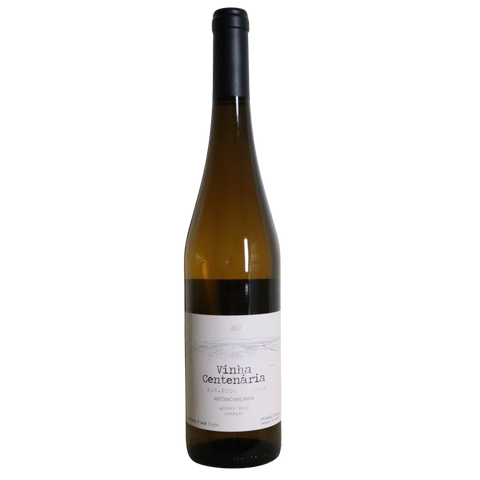
2020 Azores Wine Co. "Vinha Centenaria" Branco, Azores, Portugal
Yellow citrus-straw color. In the palate, the wine has beautiful concentration with bright acidity, intensity, and saline notes. A wine born in the middle of the Atlantic Ocean performs beautifully with all sorts of seafood, owing to its salinity and minerality. It is also a great match to suckling pig and pork belly.
There are 6 units left in stock.
ABOUT THIS WINE
After phylloxera and oidium’s devastating outbreak in the 19th century, the locals maintained a small pocket of vineyards. This “Vinha Centenária” wine comes from one of those 100+ year-old vineyards that are considered the guardians of the island's native grapes and traditional vineyard composition. 85% Arinto dos Açores with Verdelho, Boal and Alicante Branco from vines that are 100+ years old planted in volcanic basalt soils at less than 150 feet above sea level. Grapes are hand-picked and head to the sorting table, then direct press, decanted for 12 hours in cold. First press (70%) is fermented and aged in stainless steel in horizontal tanks, and the second press (30%) is fermented and aged in 3-year French oak barrels without batonnage for 9 months.
ABOUT THIS PRODUCER
The story of this exceptional wine begins with António, who co-founded FitaPreta Vinhos in sunny Alentejo before embarking on the adventure of the Azores Wine Company. His connection to the Azores runs deep, as his father's homeland and his many childhood trips to the islands inspired him to take on the challenge of reviving the indigenous Terrantez do Pico varietal with his two partners.
Arinto dos Açores is a grape variety indigenous to the Azores that shares the acidity and potential for longevity of the mainland variety that shares its name. However, the two are not related. The grape variety's characteristics, coupled with Pico’s unique terroir, impart incredible minerality, purity and unmistakable salinity to the wine.
The Portuguese archipelago of the Azores is home to a winemaking tradition that dates back to its colonization in the 15th century, wherein Franciscan friars introduced viticulture. This group of islands is home to a singular terroir and microclimate, which draws a close comparison to the island of Santorini. Like Santorini, the Azores are volcanic islands comprised entirely of black basalt. Pico, the main wine-producing island where these vineyards are located, has such poor soil that the vineyard needs to be supplemented with soil from neighboring islands to support vine growth, and even with that, the yields are a fraction of what they are in the rest of the DOC. Additionally, the vineyards are grown in tiny plots (2-6 bush-trained vines per square) protected on all sides by small walls called “currais” to ward off the strong winds that blow in from the North Atlantic, mere steps from the vineyards. At its peak, Pico was home to over 6,000 ha of vineyards. These are still there today but are mainly grown over by forests – only a handful of small family-owned vineyards remain outside the production of 3 leading producers. Azores Wine Company is the clear leader at 116 hA of recovered vines.
Details:
| Grape(s) | Arinto dos Açores, Verdelho, Boal, Alicante Branco |
| Farming | Sustainable |
